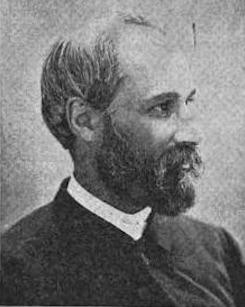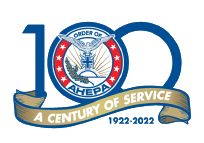George Constantine

Reverend George Constantine, D.D.
Source: The Missionary Herald. December, 1891
George Constantine was born in Athens, Greece on January 1, 1833, and came to America in 1850. He graduated from Amherst College (1859), Andover Theological Seminary (1862), and was ordained in 1862. He also received a Doctorate of Divinity from Bates College (Lewiston, Maine) in 1883. At Amherst's Commencement, he gave the Greek Oration (New York Times, 13 August 1859. p. 2).
Reverend George Constantine spent the rest of his life until his death in 1891 as a Protestant missionary in Athens (1862-1880 for the American and Foreign Christian Union) and Smyrna (1880-1892 for the American Board of Commissioners for Foreign Missions). He served as United States Vice-Consul and acting Consul for the Port of Athens; and founded the Greek Evangelical Alliance.
In 1872, Rev. George Constantine sent to Amherst a "monumental slab which he thinks must be one of the oldest in Greece, even as old as the stone lions at Mycenae" (The Inter Ocean [Chicago], 26 April 1872, p. 2).
He was the editor of "The Athenian" newspaper in Athens. In 1877, Professor Edwin North of Hamilton College in assessing the state of journalism in Greece commended Reverend George Constantine as "one of the most genial and enterprising editors in Athens" (Democrat and Chronicle [Rochester, NY], 27 February 1877, p. 3). He authored several books including the "First Commentary on the Gospels" (2 volume set in modern Greek), "Treatise on the Character of Christ," "The Greek Church," "A Bible Dictionary" and also several pamphlets.
Rev. George Constantine died on October 6, 1891 in Harrogate, Yorkshire, England.
The following obituary is from The Missionary Herald published December, 1891:
He died at Harrogate, England, whither he had gone, with his wife, in the hope of restoration to health.
He had suffered greatly for the last two years, and had been unable to attend to his work in connection with the Greek Alliance. He received treatment for three months at a hospital in London, where for a while he improved slowly, so that both he and his friends anticipated a full recovery.
"But as the days went on," his wife writes, "it was evident that the end of his sickness was near. When he learned this, he was surprised, saying that he did not seem very sick, and that he did not feel as if he were about to die. There were hours when he seemed a little better, but death took the body to silence, and life took the soul to heaven, on October 6, in Rev. George Constantine, D.D. the freshness of the morning hours. His grave is at Athens, beside his [first] wife's and those of their two little boys."
Dr. Constantine was born at Athens, Greece, January 1, 1833. He came to the United States when he was quite a young man, apparently in the spirit of adventure. The story he told the writer, of his voyage and of the first few weeks after his arrival in America, was more strange than that of any romance we recall. Robbed on landing of what little he had, he set out from New York knowing no person in this country nor a word of our language. Yet in some way he had an idea that if he could reach Professor Sophocles, of whose residence he knew nothing save that it was "near Boston," he should be cared for; so he traveled hither, asking for "near-Boston," supposing that this was the name of a city.
We had it from his own lips, that the day after landing at New York, as he walked the street, he saw a crowd gathering about a street preacher, and stopped to listen. The preacher’s face was so kindly and he was so earnest that the young Greek, though he understood nothing of what was said, save the name of Jesus Christ, was profoundly impressed. His solitary condition gave mighty emphasis to the voice of conscience within, and the Spirit of God moved him to repentance and the resolve for a new life. He gave himself to God then and there, somewhat blindly, as he admitted, but devoutly. He was led by a strange series of providences to the house of Professor Sophocles, at Cambridge, where he was befriended, and ultimately started on a course of study which led him through Amherst College and Andover Seminary. From the college he graduated in 1859 and from the seminary in 1862.
After marrying Miss S. Amanda Farr, of Charlestown, Massachusetts, in 1862, he went to Athens, in the employ of the American and Foreign Christian Union. Subsequently he labored independently in that city, and in 1881 he became connected with the mission of the American Board, and was the president of the Greek Alliance, with headquarters at Smyrna.
Mrs. [Amanda] Constantine died at Smyrna in October, 1887, and in June, 1889, Dr. Constantine married Miss Maud Grimstone, who for years had been doing excellent missionary service at Smyrna. Mrs. Constantine and two daughters survive him.
Dr. Constantine was no ordinary man and no ordinary orator. He had the power to move an audience as comparatively few men can do, even when he spoke in English, but it is said that when he preached in his native Greek his eloquence seemed sometimes irresistible. He was a man of profound convictions, a warm friend, an earnest and devoted Christian.
Secretary N. G. Clark, who knew him well, writes of him:
"Dr. Constantine was in many respects a remarkable man. The story of his trials in this country was a thrilling one. Cast upon our shores a poor boy, ignorant of the language, suffering often for the necessaries of life, but never faltering in his purpose till he had graduated from Amherst and Andover with the honor and affectionate regard of classmates and professors, doing his best for years against great odds for his loved Athens, then at Smyrna where his eloquence drew large audiences of eager listeners, then broadening his plans to include his countrymen scattered throughout Asia Minor, he did a work of which many a man might well be proud. His loss at this juncture to the Greek work is wellnigh irreparable, yet his spirit of earnest consecration to his Master and his devotion to the welfare of his countrymen will long be remembered in many a Greek home."
Mr. Bartlett, of Smyrna, writes that when the sad tidings of Dr. Constantine’s death reached that city "the pupils of the schools were called together and after a brief service were dismissed for the day. On the Sunday following were held union memorial services, the Greek, Armenian, and English friends uniting. The brethren of the Alliance have lost their leader, and who will take his place?"
May God raise up some one who will be as able, as faithful, and as devoted as was this servant of his, whom he has now taken to the home on high!
Source: "Reverend George Constantine, D.D." The Missionary Herald, vol. 42, no. 12. December 1891, pp 511-512.
The Greek Evangelical Alliance
One of the important features of this period was the organization of the "Greek Evangelical Alliance" in 1883, under the leadership of Dr. George Constantine, who had come from Athens for work among the Greeks.
This "Alliance " is a Home Missionary Society organized especially for evangelistic and educational work among the Greek-speaking Greeks. From the time of its organization the Board has made them a yearly grant-in- aid, always less than one half the sum actually expended in their work, while they are left to manage their own affairs, in consultation with the missionaries. Since the death of their leader,
Dr. Constantine, one of the missionaries of the Smyrna station, is annually chosen a member of their Executive Committee, with an equal voice in all its plans and a share in all its responsibilities. The members of the Alliance have from the first shown a most commendable zeal and self-denial in the work they have undertaken.
The places now occupied by the Alliance are Smyrna, Manisa, and Baindir in the Smyrna field, with Ordoo and Semen in the Trebizond field. At all these points the work promises well for the future. An event worthy of note here was an attempt on the part of the "orthodox " Greeks, in the spring of 1887, to check the progress of the Alliance by mob violence, but the result was rather to advertise and bring more prominently before the public the work they were seeking to destroy.
Source: "Greek Evangelical Alliance" The Missionary Herald, vol. 91, no. 3. March 1895, p 218.
The following obituary is from The Bates Student published October, 1891:
Rev. George Constantine, D.D., for many years a missionary in Athens, Greece, afterwards in Smyrna, author of the "First Commentary on the New Testament" and the first Bible Dictionary ever published in modern Greek, died in Harrogate, Yorkshire, England, on Tuesday, October 6th.
Dr.Constantine was a native of Athens, but was educated in this country. He was a graduate of Amherst College andAndover Theological Seminary where he was in the same class with Professors Howe and Stanton. In 1883, he received the degree of D.D). from Bates College [Lewiston, Maine]. He has twice visited Lewiston, and on both occasions has preached in some of the city churches and lectured in the college chapel.
Those of us that had the privilege of listening to him, or of meeting him socially, will never forget his eloquence, his sympathetic and genial manner, and the unaffected earnestness of his Christian character.
Source: "Rev. George Constantine, D.D." The Bates Student, Bates College, vol. 19, no. 8. October 1981, p 284.
